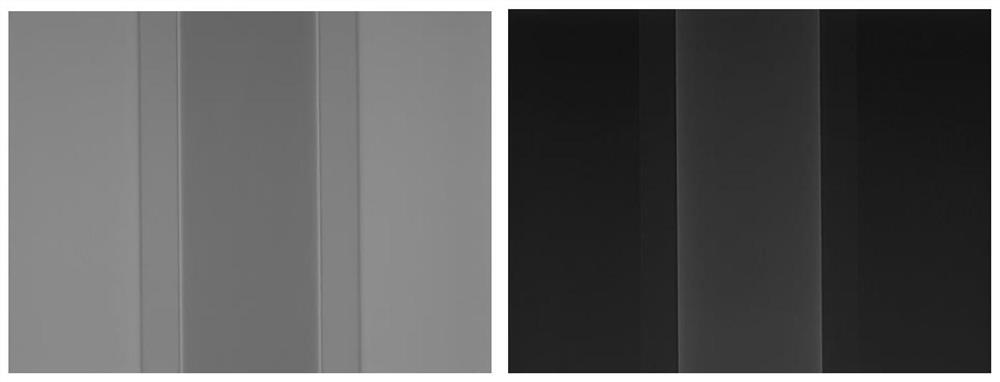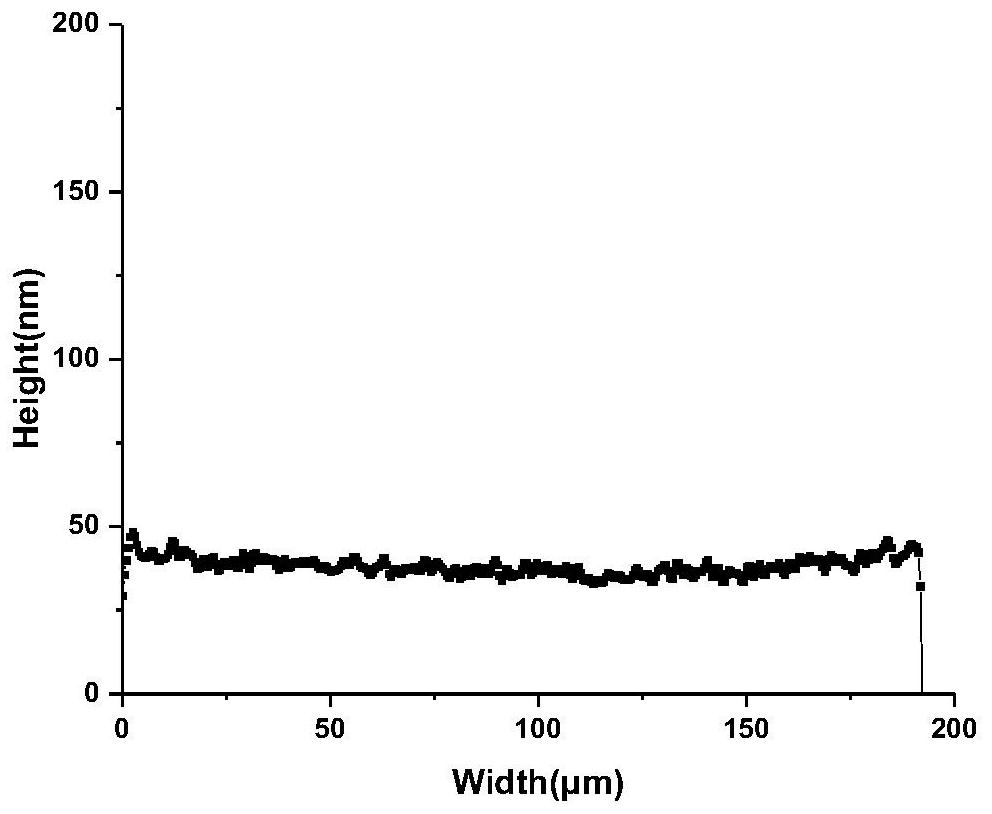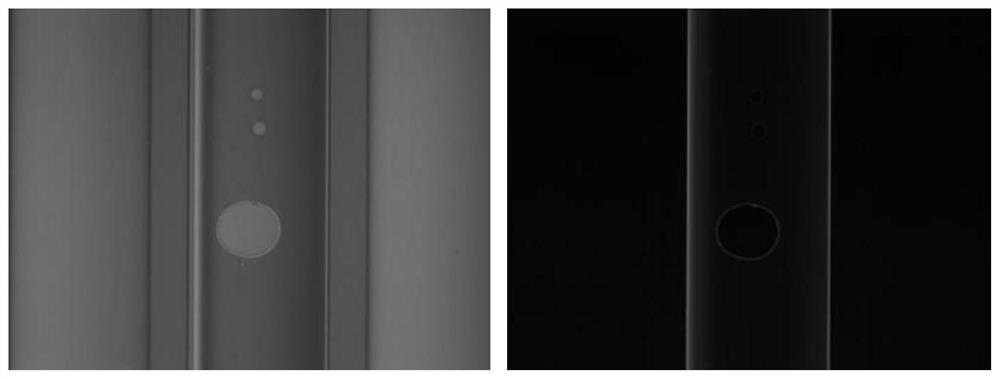Organic luminescent material ink, preparation method thereof and ink-jet printing method
A luminescent material, inkjet printing technology, applied in the direction of replication/marking method, printing, ink, etc., can solve the problems of discontinuous film, affecting film uniformity and device performance, slow solvent evaporation rate, etc., to achieve uniform film distribution. Effect
- Summary
- Abstract
- Description
- Claims
- Application Information
AI Technical Summary
Problems solved by technology
Method used
Image
Examples
Embodiment 1
[0048]Weigh 2.5 mg of PVAC2 and place it in a container, then weigh 0.6 ml of cyclohexanone and add it to the container to form a mixed solution, then weigh 0.2 ml of isopropyl toluene and 0.2 ml of cyclohexylbenzene, put them into the above mixing In the solution, the first solvent content is 61.0wt%, the second solvent content is 18.3wt%, the third solvent content is 20.4wt%, and the solute content is 0.3wt%. Stir at room temperature, and after complete dissolution, an organic luminescent material ink is obtained.
[0049] figure 1 It is the optical microscope image (the left figure is an optical microscope image, and the right figure is a fluorescence microscope image) of the PVAC2 film deposited in the PVAC2 film in the restricted channel by inkjet printing of the PVAC2 ink prepared in embodiment 1, figure 2 is the cross-sectional height map of the CP3VAC film deposited in the confinement channel by inkjet printing of PVAC2 ink in embodiment 1, from figure 1 and figur...
Embodiment 2
[0051] Weigh 2.5 mg of PVAC2 and place it in a container, then weigh 0.5 ml of chlorobenzene and add it to the container to form a mixed solution, then weigh 0.3 ml of cumene and 0.2 ml of cyclohexylbenzene, and put them into the above mixed solution , wherein the first solvent content is 55.1wt%, the second solvent content is 25.8wt%, the third solvent content is 18.9wt%, and the solute content is 0.2wt%. After being stirred at room temperature and completely dissolved, an organic small molecule light-emitting material ink suitable for inkjet printing and capable of improving the uniformity of the printed film is obtained.
Embodiment 3
[0053] Weigh 3 mg of PVAC2 and place it in a container, then weigh 0.5 ml of o-xylene and add it to the container to form a mixed solution, then weigh 0.3 ml of isopropyl toluene and 0.2 ml of chloronaphthalene, and put them into the above mixed solution Among them, the first solvent content is 46.9wt%, the second solvent content is 27.3wt%, the third solvent content is 25.5wt%, and the solute content is 0.3wt%. After being stirred at room temperature and completely dissolved, an organic small molecule light-emitting material ink suitable for inkjet printing and capable of improving the uniformity of the printed film is obtained.
PUM
| Property | Measurement | Unit |
|---|---|---|
| boiling point | aaaaa | aaaaa |
| surface tension | aaaaa | aaaaa |
| surface tension | aaaaa | aaaaa |
Abstract
Description
Claims
Application Information
 Login to View More
Login to View More - R&D
- Intellectual Property
- Life Sciences
- Materials
- Tech Scout
- Unparalleled Data Quality
- Higher Quality Content
- 60% Fewer Hallucinations
Browse by: Latest US Patents, China's latest patents, Technical Efficacy Thesaurus, Application Domain, Technology Topic, Popular Technical Reports.
© 2025 PatSnap. All rights reserved.Legal|Privacy policy|Modern Slavery Act Transparency Statement|Sitemap|About US| Contact US: help@patsnap.com



